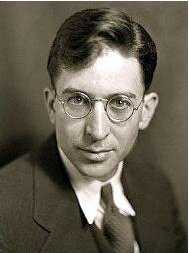Carl Weiss
| Carl Weiss | |
|---|---|
|
Dr. Carl Weiss | |
| Born |
Carl Austin Weiss December 6, 1906 Baton Rouge, Louisiana |
| Died |
September 8, 1935 (aged 28) Baton Rouge, Louisiana |
Resting place | Exhumed from Roselawn Cemetery in Baton Rouge; remains never returned |
| Alma mater |
Catholic High School |
| Occupation | Physician |
| Religion | Roman Catholic |
| Spouse(s) | Yvonne Louise Pavy Weiss (married 1933-1935, his death) |
| Children | Carl Austin Weiss, Jr. |
| Parent(s) | Carl Adam and Viola Maine Weiss |
| Relatives |
Benjamin Pavy (father-in-law) |
Carl Austin Weiss, Sr. (December 6, 1906 – September 8, 1935), was an American physician from Baton Rouge, Louisiana, who assassinated nationally famous U.S. Senator Huey Pierce Long, Jr., at the Louisiana State Capitol on September 8, 1935.
Baton Rouge doctor
Weiss was born in Baton Rouge to Carl Adam Weiss, M.D., and the former Viola Maine. He was educated in local schools and graduated as the valedictorian of St. Vincent's Academy. He then obtained his bachelor's degree in 1925 from Louisiana State University in Baton Rouge. He did postgraduate work in Vienna, Austria, and was thereafter awarded internships in Vienna and at Bellevue Hospital in New York City. In 1932, he returned to Baton Rouge to enter private practice with his father. He was president of the Louisiana Medical Society in 1933 and a member of the Kiwanis International (Conrad 1988, 2:831).
The Pavy-Opelousas connection
In 1933, Weiss married Yvonne Louise Pavy of Opelousas, the seat of St. Landry Parish. The couple had one son, Carl Austin Weiss, Jr. (born 1934). Pavy was the daughter of Judge Benjamin Henry Pavy (1874–1943) and Ida Veazie (died 1941). Judge Pavy was part of the anti-Long political faction. Judge Pavy's brother Felix Octave Pavy (1879-1962), a physician in Leonville and later Opelousas, had run for lieutenant governor in 1928 on an intraparty ticket opposite the Long slate. Dr. Pavy was defeated for lieutenant governor[1] by Paul N. Cyr, a dentist from Jeanerette in Iberia Parish, who thereafter turned against Long.
Benjamin Pavy was the Sixteenth Judicial District Court state judge from St. Landry and Evangeline parishes. He did not seek reelection in 1936, after Long had the legislature gerrymander the seat to include a majority of pro-Long voters within a revised district.(Conrad 1988, 2:635). Weiss's father was a prominent eye specialist who had once treated Senator Long.[2]
Murder of Huey Long
On September 8, 1935, Weiss confronted and shot Huey Long in the Capitol building in Baton Rouge. Weiss was cornered and killed by Long's bodyguards, having been shot sixty-two times.
Weiss was interred at Roselawn Cemetery in Baton Rouge. As measured by the number of mourners, Weiss's funeral is believed to have been the largest ever held for an accused political assassin in the United States.[3]
Family denials
At the time, Weiss's wife, her parents and other family members accepted his guilt, but his parents disagreed because Weiss had seemed to be quite happy earlier in the day that Long was killed.[4]
Weiss's son—Carl Weiss, Jr., an infant at the time—has since vigorously disputed the assertion, most notably in a 1993 interview on the NBC program Unsolved Mysteries.[5] However, his thesis that Huey was accidentally shot by one of his own bodyguards has not been accepted by any scholars. Professor T. Harry Williams of LSU dismissed it as wishful thinking on the part of Weiss's son. In his exhaustive, Pulitzer Prize-winning biography of Long, Williams wrote:
- no one had taken it very seriously, for unless all the witnesses to the event were lying or mistaken, only four shots had been fired while Huey was still in the corridor, the two from Weiss's pistol that struck Huey and Roden's wristwatch respectively and the two from the revolvers of Roden and Coleman that dropped Weiss. By the time the other guards had got their guns out and started to fire Huey had run from the scene.[6]
Film portrayal
The character of Adam Stanton in Robert Penn Warren's fictitious All the King's Men is partially based on Weiss.
References
- ↑ "Felix Octave Pavy". New Orleans Times-Picayune. May 14, 1962. Retrieved March 7, 2015.
- ↑ http://ajlambert.com/history/hst_hc30.pdf
- ↑ http://books.google.com/books?id=dDOW75aJMR8C&lpg=PP1&pg=PA35#v=onepage&q&f=false
- ↑ T. Harry Williams, Huey Long (1969), p. 868
- ↑ http://www.imdb.com/title/tt0737614/plotsummary www.imdb.com
- ↑ T. Harry Williams, Huey Long (1969), p. 870
- Conrad, Glenn R. 1988. A Dictionary of Louisiana Biography. Lafayette: Louisiana Historical Association.
- Richard D. White, Jr., Kingfish (New York: Random House), pp. 258–259.
- Douglas H. Ubelaker, 1997. Taphonomic Applications in Forensic Anthropology. In: Haglund, W.D. & Sorg, M.H. (eds): Forensic Taphonomy: The Postmortem Fate of Human Remains. CRC Press, pp.: 77-90; Boca Raton.
- Williams, T.H., 1969, Huey Long, New York: Alfred A. Knopf Inc.
- Gremillion, E.A., 2011 Did Carl Weiss shoot Huey Long
